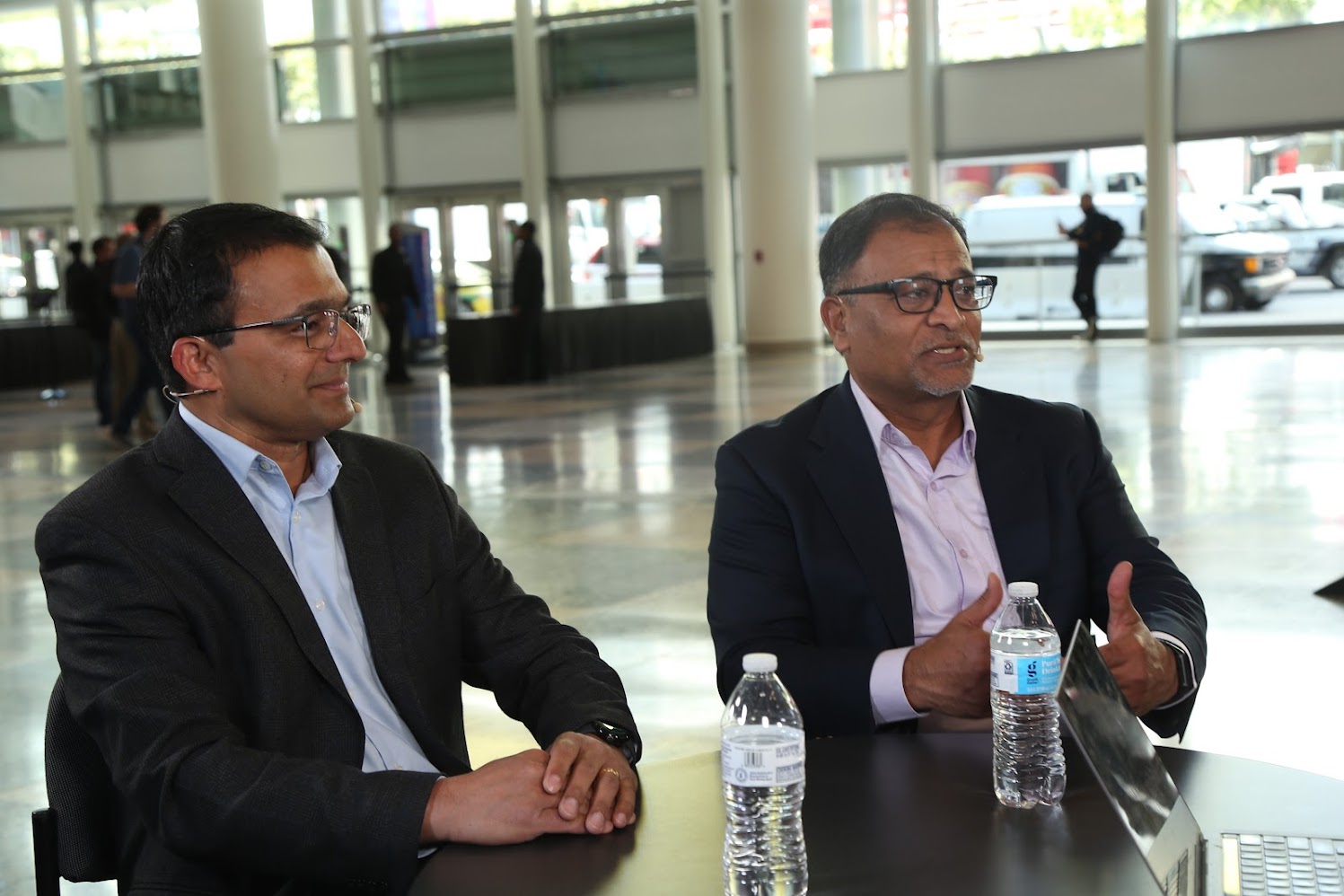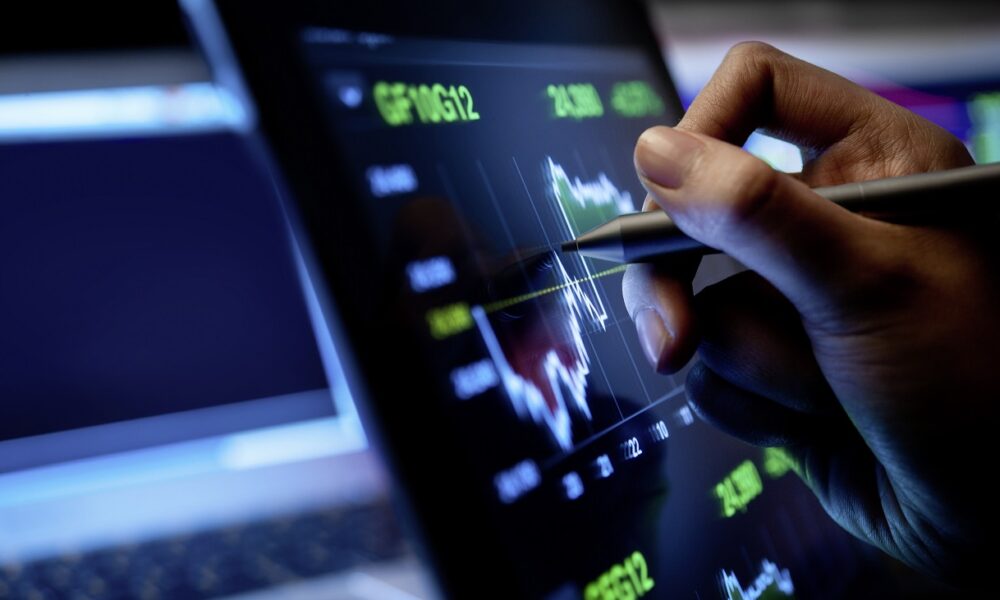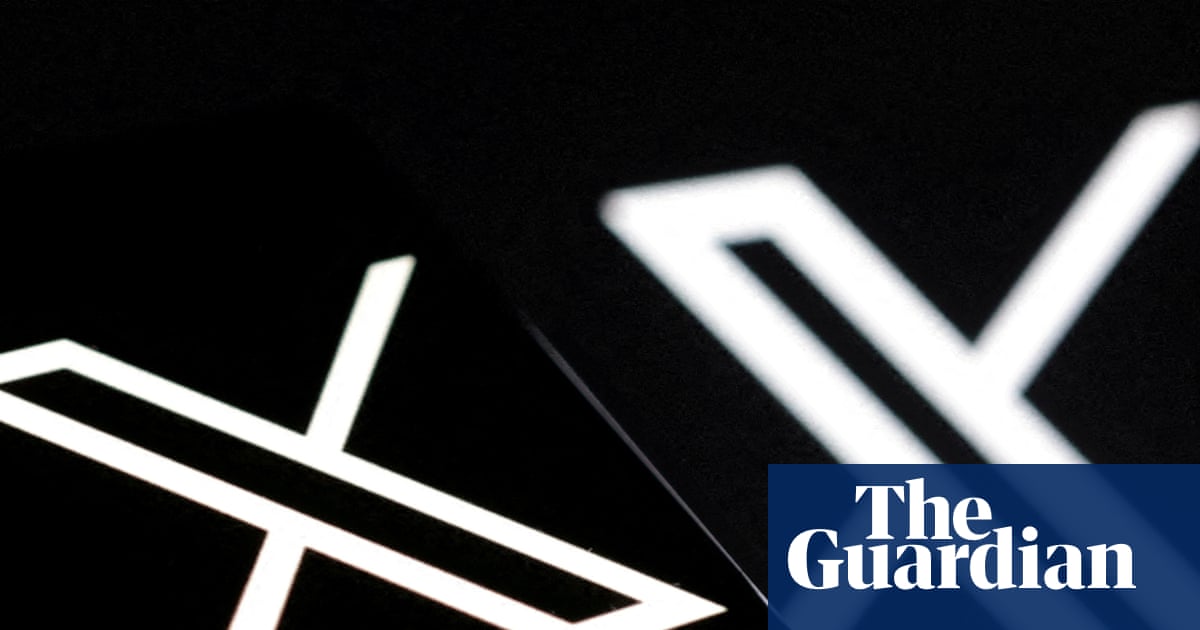In its role working with major technology companies such as Google LLC, PricewaterhouseCoopers LLP is in a position to observe industry trends as they develop across enterprise verticals. When it comes to AI security tools, the management consulting company has seen hesitancy among some clients to adopt them, driven by key questions surrounding controls and governance.
“The market is in an interesting place,” said Prakash Venkata (pictured, right), principal of cyber, risk and regulatory at PwC. “Right now, if you look at it, either you are all-in or hesitant and trying to figure it out. The all-in guys are thinking end-to-end. In the past they would just jump in and figure it out. Now, they’re starting with, ‘What are the controls I need? What are the governance pieces I need? How do I democratize but have control over it?’ That is a significant change, the way we are looking at the industry and the organizations.”
Venkata spoke with theCUBE’s John Furrier at the RSAC 2025 Conference, during an exclusive broadcast on theCUBE, News Media’s livestreaming studio. He was joined by Vinod D’Souza (left), director of the Office of the CISO – manufacturing and industry – at Google Cloud. They discussed the evolution of AI security tools to combat threats and protect organizations. (* Disclosure below.)
Leveraging AI security tools for the SOC
One of the areas of cybersecurity where PwC and Google have examined the application of AI has been in the security operations center. In early April, Google Cloud announced its Unified Security platform, which includes security-focused artificial intelligence agents and a centralized data fabric to unify SOC and cloud workflows.
Google Cloud’s Vinod D’Souza and PwC’s Venkash Prakata talk with theCUBE about the evolution of AI technology to combat threats and protect organizations.
“We need to think about how the SOC operates,” D’Souza said. “You have tier one, tier two analysts and more advanced level analysts to look at some of these events. Humans have been doing a lot of repetitive things to get there. Now we are training these agents by their experience and by the history of evidence to make decisions based on historical amounts of data. This is now the collaboration between the machine and the human to help businesses to protect.”
In addition to strengthening capabilities in the SOC, Google and PwC are taking a closer look at cyber resilience in the overall framework of cybersecurity operations. AI agents can play a role in supporting human investigation and remediation when an intrusion occurs.
“Assuming that somebody is in, how can we withstand and continue to operate in those situations?” D’Souza said. “That’s where agents and AI tools come in handy. We are trying to give humans additional horsepower or additional time to work on some of the complex issues. That’s where you get the volume and the scale and the efficiency.”
Security experts are finding that the implementation of AI tools can provide real-time insight into the threat landscape. This has become even more significant in a field where hours, minutes or even seconds for rapid response have become the new normal.
“I don’t have weeks, I don’t even have days,” Venkata explained. “In real time, I want to capture what’s going on, and I want to analyze how they are going about it. I want to use that as threat intelligence for that, so my neighbor is not getting attacked. Those things are shifting so fast.”
Here’s the complete video interview, part of News’s and theCUBE’s coverage of the RSAC 2025 Conference event:
(* Disclosure: Google LLC sponsored this segment of theCUBE. Neither Google nor other sponsors have editorial control over content on theCUBE or News.)
Photo: News
Your vote of support is important to us and it helps us keep the content FREE.
One click below supports our mission to provide free, deep, and relevant content.
Join our community on YouTube
Join the community that includes more than 15,000 #CubeAlumni experts, including Amazon.com CEO Andy Jassy, Dell Technologies founder and CEO Michael Dell, Intel CEO Pat Gelsinger, and many more luminaries and experts.
THANK YOU









